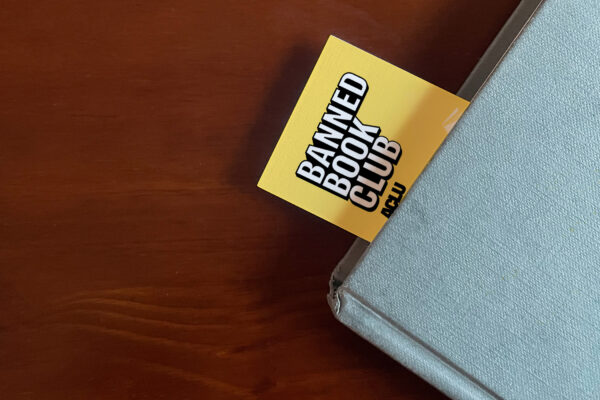Libraries are essential to democracy. They ensure equitable access to information, promote civic engagement, and strengthen community.
They also champion diverse and courageous ideas—ideas so powerful that some governments try to suppress them. That’s why intellectual freedom, the right to access ideas without government interference, is protected by the First Amendment and the ACLU of Idaho has worked to defend it for decades.
Idaho Book Bans and Censorship
A 2024 Idaho law restricts what kind of books are available in Idaho public schools and libraries by requiring materials deemed “harmful to minors” to be relocated to an area with “adult access only.” The law uses a vague definition of “harmful” that includes sexual conduct and homosexuality, risking targeted censorship of LGBTQ+ content.
Idaho’s library law outlines a complaint process that allows wide clearance to challenge books—and even sue libraries—but offers only limited means for libraries to defend against these lawsuits. The law also grants a private cause of action that allows individuals to sue libraries for violations, and includes a cash award that may incentivize frivolous claims and bad faith actors.
How Idaho’s Library Censorship Law Works
Idaho’s library law requires public and school libraries to move materials deemed “harmful to minors” to a designated “adult” section of the library, within 60 days of a written complaint. Libraries may face lawsuits for failure to relocate materials and penalties include a mandatory $250 fine and other potential fines. Read more about the three-step complaint and review process here.
The law defines “harmful” as including anything related to sexual conduct, nudity, or homosexuality. By including homosexuality in what counts as harmful to youth, the law falsely implies the LGBTQ+ community is inherently sexual. In practical terms, it means LGBTQ+ content is at risk of broad censorship, both in response to or from fear of potential challenges and lawsuits.
Library and Book Ban Resources
Stay Informed
Sign up to be the first to hear about how to take action.
By completing this form, I agree to receive occasional emails per the terms of the ACLU’s privacy statement.
By completing this form, I agree to receive occasional emails per the terms of the ACLU’s privacy statement.

